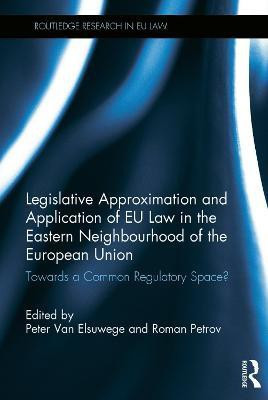Legislative Approximation and Application of EU Law in the Eastern Neighbourhood of the European Union(English, Hardcover, unknown)
Quick Overview
Product Price Comparison
This book explores the exportation and application of European Union legislation beyond EU borders. It clarifies the means and instruments of the voluntary application of the EU's norms by third countries and analyses in detail the process of legislative approximation between the EU and its East European neighbours. It also assesses the extent to which the EU is successful in promoting its legal standards abroad. The first part of the book addresses the EU's mechanisms and instruments promoting the export of its own laws and practices to other countries. Key issues include the post-Lisbon constitutional basis for the EU's engagement with its Eastern neighbours (Art. 8 TEU); the different methods of acquis export and the impact of a new generation of Association Agreements providing for the establishment of Deep and Comprehensive Free Trade Areas (DCFTAs) and, ultimately, a Neighbourhood Economic Community (NEC) between the EU and its Eastern partners. The second part of the book includes substantive country reports that analyse the process of legislative approximation and application of EU law in the Eastern Partnership countries and Russia, authored by leading academics from the countries concerned. While currently these countries are not working towards full EU membership, the EU encourages them to approximate and converge their legislation with the EU acquis. The book also offers a unique picture of current practice of the application of EU law by judiciaries in the countries of the Eastern Partnership and Russia. The book concludes with reflections on the multi-faceted character of legislative approximation and the challenges surrounding the application of EU law in the EU's Eastern neighbourhood. The conclusions reached are highly informative as to the effectiveness of present and future EU external regional policies aimed at the promotion of EU common values and EU legislation into the legal orders of third countries.


